#FEMALEFORWARDINTERNATIONAL
Meet Edita Tahiri from Kosovo
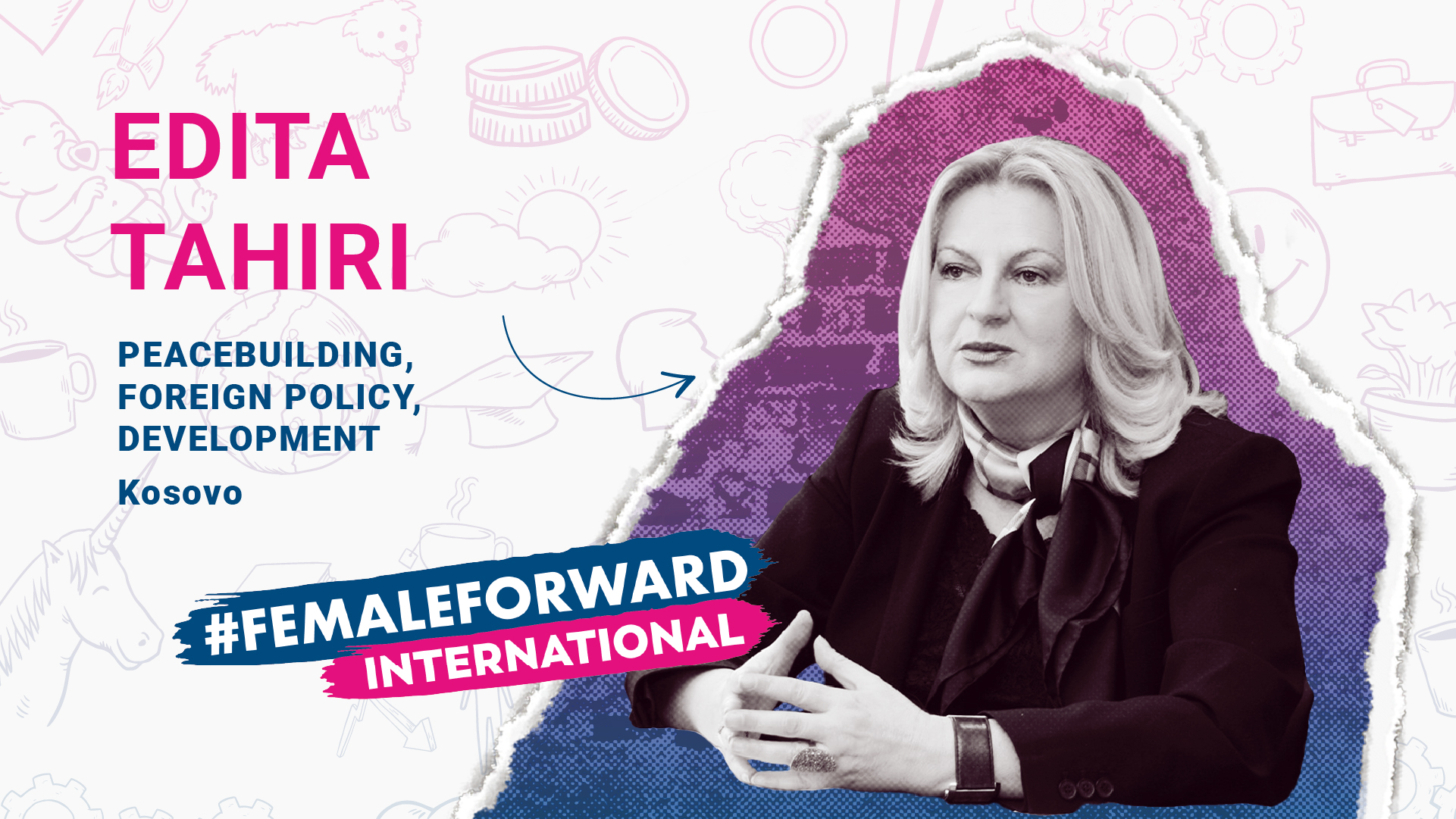
The story of Kosovo leader Edita Tahiri – from the struggle for independence to wartime peace negotiations and on to today.
Very few women in the world can start their life’s journey as part of an oppressed people in their country, grow to be the voice of their new-born nation to the world, help it earn its freedom, and not only live to tell the tale, but also make a successful political career. Edita Tahiri from Kosovo is one such rare example, and she has many stories to tell.
Tahiri, born in 1956, is one of Kosovo’s leaders and was a chief diplomat during the struggle for independence and for the recognition of Europe’s youngest state. She served as Minister of Foreign Affairs for ten years during the hard times of the fight for independence, as Deputy Prime Minister, as Minister of Dialogue, as Minister of Public Administration, and as a representative in five different National Assemblies in Kosovo. For seven years (2011-2017) she acted as the chief negotiator of the normalization dialogue with Serbia and signed the Declaration of Independence of the Republic on 17 February 2008. Tahiri was also part of the Kosovo delegation at the Rambouillet Peace Conference in 1999 that practically paved the way for Kosovo’s independence and international recognition.
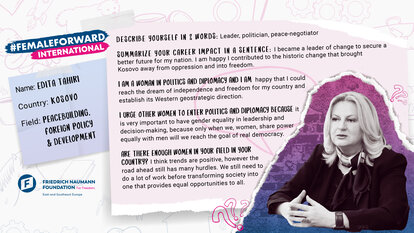
Tahiri is a Harvard University graduate, holding a MA in Public Administration from the John F Kennedy School for Government and has a doctoral degree in political science from the University of Pristina in cooperation with Johns Hopkins University SAIS in Washington DC. Earlier, she earned an undergraduate degree in Telecommunications in Pristina, Kosovo and a master’s from Essex, UK.
In the first days of the independence movement, Kosovo’s best and brightest nominated her to be the Minister of Foreign Affairs of this still non-existent country. “At the time, it was very important to have people who were patriots, well-educated, and not nostalgic for communist times. Our movement’s leadership were all nationalists, we were the elite of Kosovo,” she recalls. The fact that she was a woman was secondary at the time. “When the nation is in danger, there is no place for gender,” she laughs.
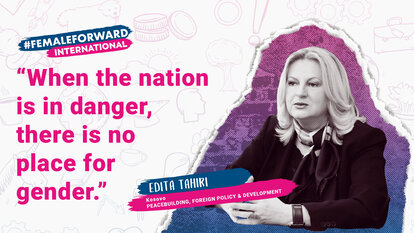
Kosovo’s leadership lacked access to the representatives of the international community. Edita Tahiri recalls: “A chief diplomat that is denied access to international institutions and important countries requires a lot of creativity to make progress,” she recalls. Yet the tragedy of her people, the Albanians, and her country motivated her to never give up and to seek any opportunity to meet with diplomats and ministers in order to gain international support for independence and make sure that genocide would never again happen to her people. “I remember that in the beginning, they would not even receive me in their offices, but in corridors, or in the cafes at international conferences. Cafeterias became places for me to lobby,” she says. She defines this diplomatic journey as ‘from the corridors of diplomacy to the White House’.
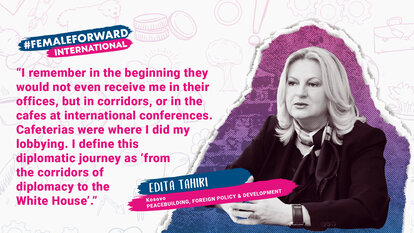
With the end of Serbia’s occupation of Kosovo and the return of normal life, this self-described ‘realist in the international realm’ has turned towards liberalism and domestic reform. “When the war ended and we gained our freedom, I started believing that this new freedom should now serve everyone. That idea led me to the ideals of liberalism and, to this day, I believe that equality of opportunity and the supremacy of the law are the basis of any democratic state and that government is there to serve the people,” Tahiri says.
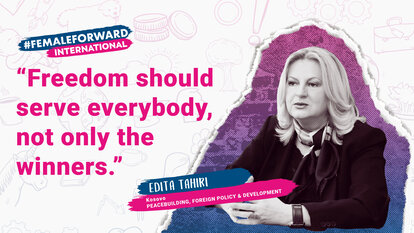
This diplomat and leader is positive about the future of her country; despite the many hurdles it has faced so far. “There are many challenges ahead of us, first of all – achieving economic progress and opening job opportunities so our youth can fulfil its dreams in Kosovo and not outside it. The emigration of our young generation is the bane of our society and of the entire Balkans. At the end of the day, the present and future of our nation rests with the energy of our youth,” Tahiri says, adding that retaining its younger citizens ought to be Kosovo’s strategic goal, along with Euro-Atlantic integration.
However, most of all, she believes that the Balkans need to finally close the chapter on its wars and hostilities and start the next one of peaceful relations. “We should not leave this burden to the next generation,” Tahiri concludes.
